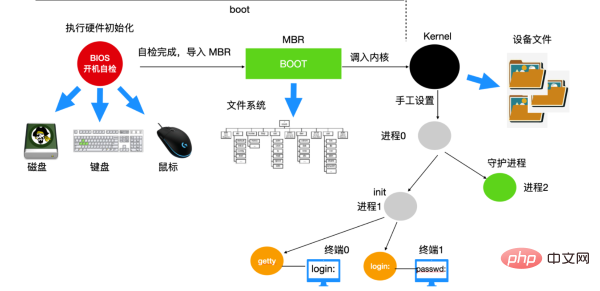
The number of Linux processes is controlled by many factors, including: 1. When the physical memory is insufficient, the operating system will choose to terminate some processes to release physical memory; 2. "Swap space" is part of the hard disk space, if the operating system has to frequently move memory pages in and out of the swap space, it will cause the system to slow down, and the number of processes may also be limited; 3. Linux will set some limits for each user and each process to Prevent a user or a process from taking up too many system resources, etc.

The operating system of this tutorial: Linux5.18.14 system, Dell G3 computer.
The number of Linux processes is controlled by many factors, including but not limited to the following aspects:

1. Physical memory:
When the physical memory is insufficient, the operating system will select some processes to release physical memory. Therefore, the number of processes may be limited when the available physical memory reaches its limit.
2. Virtual memory:
There is something called "swap space" in Linux, which is a part of the space on the hard disk. When the physical memory is insufficient, The operating system dumps certain memory pages into swap space. If the operating system has to frequently move memory pages in and out of swap space, the system will slow down and the number of processes may be limited.
3. Process restrictions:
Linux will set some restrictions for each user and each process to prevent one user or one process from occupying too many system resources. . These limits can be adjusted through the ulimit command, such as executing 300 tasks at the same time ulimit -u 300.
4. System load:
When the system load is very high (that is, a large number of processes are running), the creation of new processes will slow down. This is often called "process bursting" and is difficult to predict and control.
5. File descriptors:
Linux will allocate a certain number of file descriptors to each process. File descriptors are used to open resources such as files and sockets. If a process is processing a large number of files, it may be limited because there are not enough file descriptors, and new processes cannot be created
In summary, the number of Linux processes is controlled by a variety of factors. If system resources are limited or the load is too high, the number of processes may be limited. Therefore, these aspects need to be taken into consideration when designing the system,
The above is the detailed content of What controls the number of Linux processes?. For more information, please follow other related articles on the PHP Chinese website!